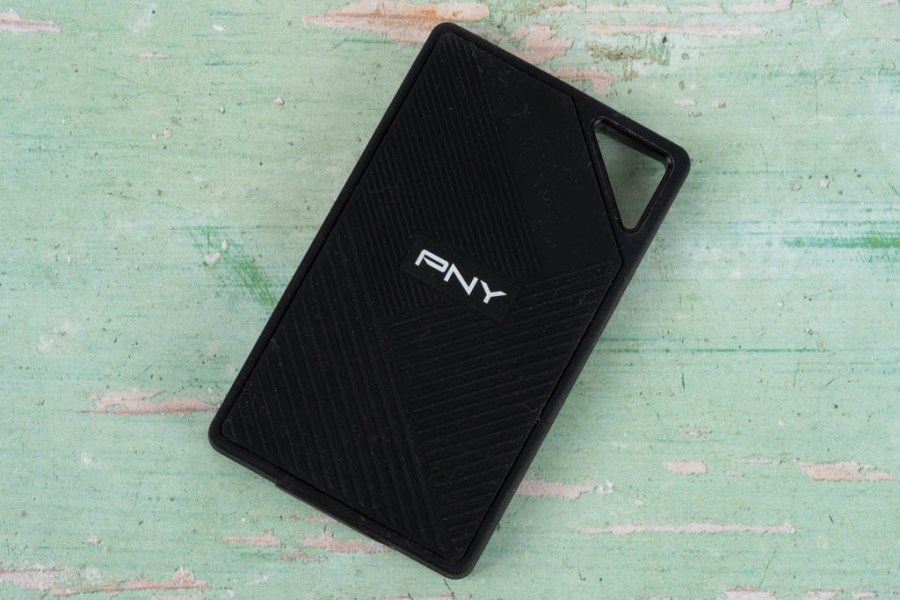Amateur Photographer verdict
With the PNY RP60, you get the speed of a USB 3.2 Gen2x2 drive, but at a price usually associated with slower devices. It just doesn’t feel quite as robust as some of its peers.- Fast read and write speeds
- Great price
- No USB-A adapter supplied
- Casing feels slightly less robust than other SSDs
The PNY RP60 is a rugged portable solid-state drive (SSD) designed for photographers and videographers on the go. It employs a USB-C connector for use with computers, smartphones, tablets and other devices, promising read speeds up to 2,000 MB/s and write speeds of 1,800 MB/s. With a silicone-coated outer shell, it’s designed to be water, dust and drop-resistant.
PNY RP60 portable SSD at a glance:
- £91 (1TB), £233 (2TB)
- USB-C connection
- 2,000 MB/s read; 1,800 MB/s write
- Water, dust and drop resistant
- 100 x 60.3 x 12.4 mm, 54.8g
- For Windows, Mac, Android and iOS devices
- pny.com
SSDs have become the preferred form of portable storage due to their small size, high speed, and inherent reliability compared to hard disc drives. This makes them ideal both for backing up your files while you’re out shooting, and as working drives for processing your photos and videos. A select few cameras can even record directly to SSD.
Most such drives use the same USB-C connector, but that doesn’t mean they’re all created equal. Instead, they employ obtusely named interface variants with different data transfer speeds. Usually, faster speeds mean higher prices. But with the RP60, PNY is promising the speed of USB 3.2 Gen 2×2, but at a price close to other brands’ USB 3.2 Gen 2×1 drives, which are inherently limited to being half as fast.
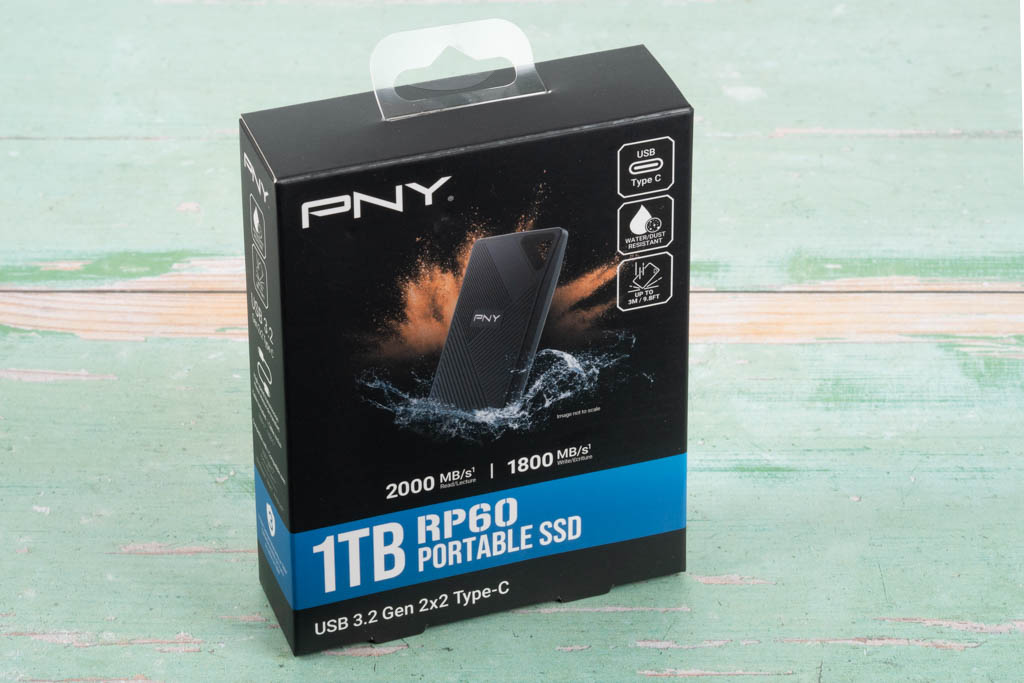
PNY RP60 Portable SSD: Key features
- Loop: A clip loop on one corner allows the drive to be securely attached to a camera bag for easy access
- USB-C cable: A generously long 30cm USB-C to USB-C cable is supplied. But there’s no USB-A cable or adapter
- Speed: To get the fastest transfer speeds, your computer needs to support USB 3.2 Gen 2×2
- Rugged: The drive is dust, water, and drop-resistant. Unusually, the USB-C port even has a plug-in cover
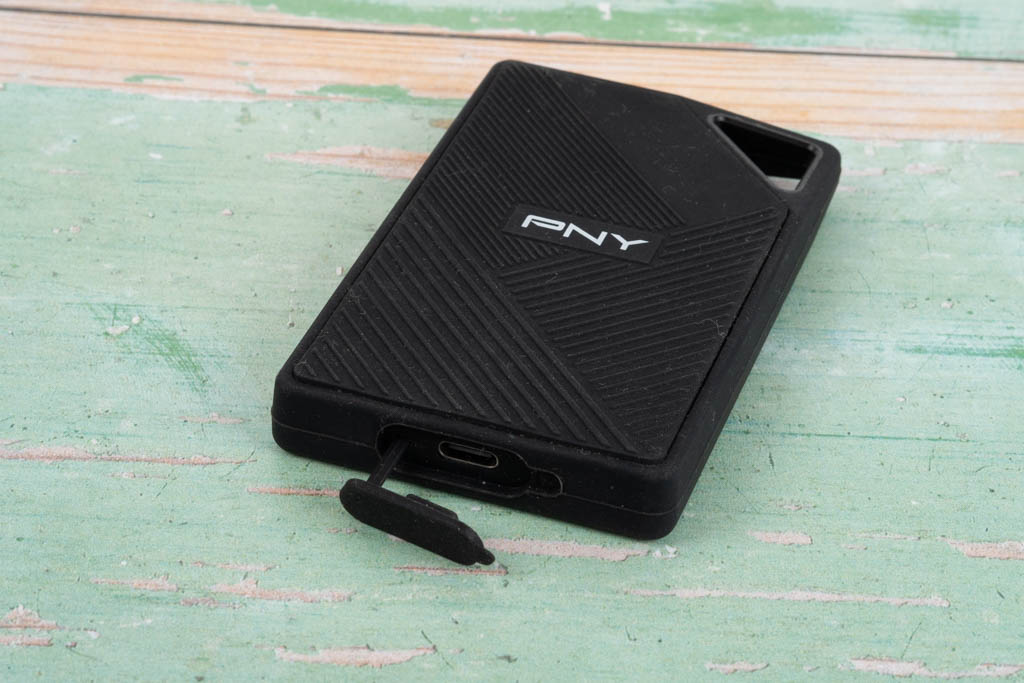
As to whether you’ll actually get the promised speeds in real life, that depends on various factors, including what size files you’re working with, and the capabilities of your host device.
To assess the RP60’s performance in practice, I compared it side-by-side to a Lexar Armor 700 SSD with the same interface (2000MB/sec read and write), and to a Sandisk Extreme drive of the USB 3.2 Gen 2×1 type, rated to 1050MB/sec read and 1000MB/sec write. Both are more expensive, at £148 and £100 for 1TB, respectively.
Using the CrystalDiskMark benchmarking software, all three drives gave similar numbers, with sustained read and write speeds of about 940MB/sec. This mainly reflects the fact that my 2019 Dell XPS 15 Windows 11 PC doesn’t support USB 3.2 Gen 2×2 very well, although it’s fully capable of exploiting the newer and faster USB 4.0.
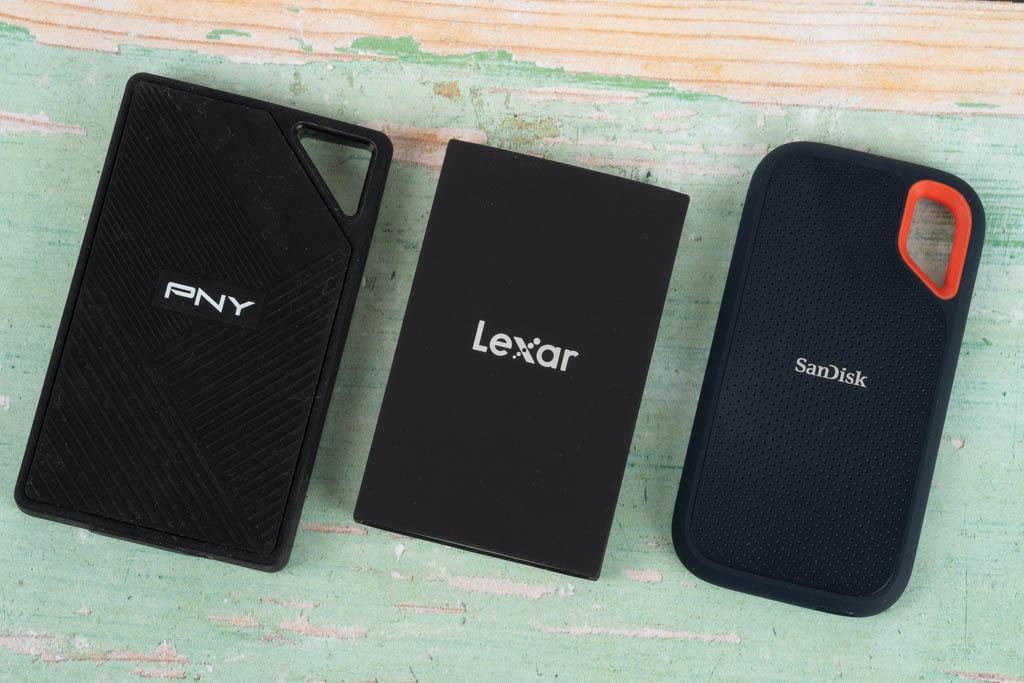
I also measured how long it took to copy a 40GB folder of raw and JPEG files to each drive from my laptop’s SSD. Again, the PNY drive matched the Lexar at about 88 seconds, with the Sandisk taking 40 seconds longer. So here USB 3.2 Gen 2×2 does measurably better. To my mind, these all probably count as ‘fast enough’ for most purposes, but if you’re copying a lot of raw files or video, that extra speed could well be valuable.
I had no problems with compatibility. I used the PNY R60 with both Windows and Mac computers, and my iPhone 15 Pro Max, with no trouble at all. I also used it as a working drive for browsing and processing 50MP Sony Alpha A1 II raw files in Adobe Camera Raw, and it worked perfectly.
In fact, about my only real criticism of the PNY drive is that its plastic casing flexes a little when you squeeze it. This doesn’t inspire quite as much confidence in its robustness compared to the more solid feel of its competitors. It’s also just fractionally larger than most other portable SSDs, but not in a way that makes it inconvenient to carry.
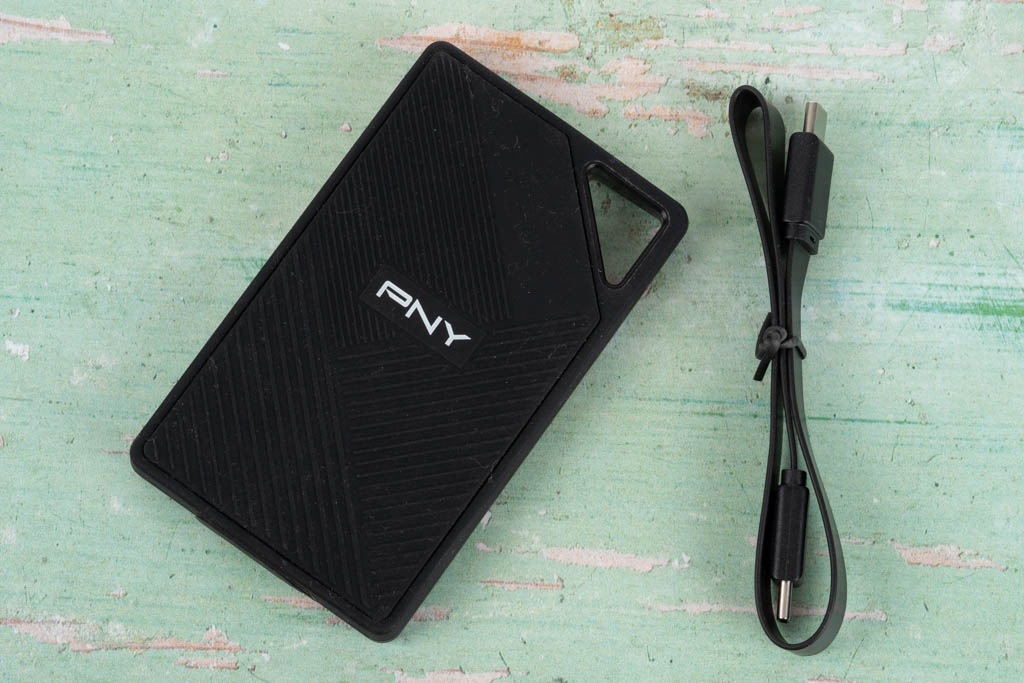
Ruggedness ratings
PNY specifies the drive should survive drops of up to 3m and work at operating temperatures of 0-70 °C. Its IP65 rating means it’s dust-tight and protected against low-pressure jets of water from any angle. However, it shouldn’t be treated as fully waterproof (i.e. able to survive full immersion).
PNY RPS 60 Portable SSD: Our Verdict
PNY has a habit of delivering high-performance storage devices at a lower price than its rivals, and once again, the RP60 delivers. Its matches much more expensive drives in terms of speed, and while it may not withstand as much abuse, it should be absolutely fine in normal use.

Follow AP on Facebook, X, Instagram, YouTube and TikTok.

